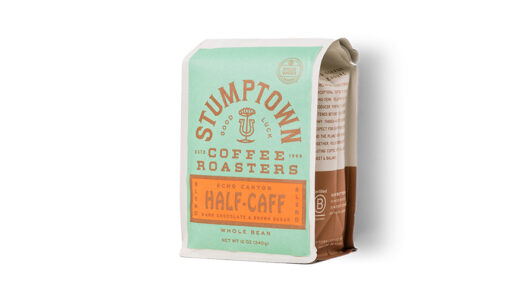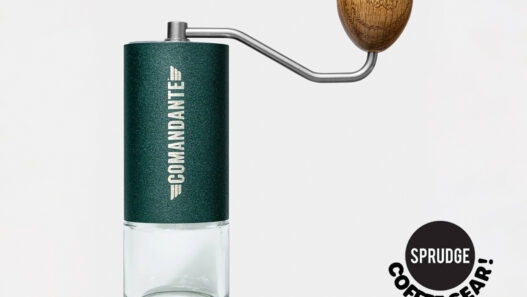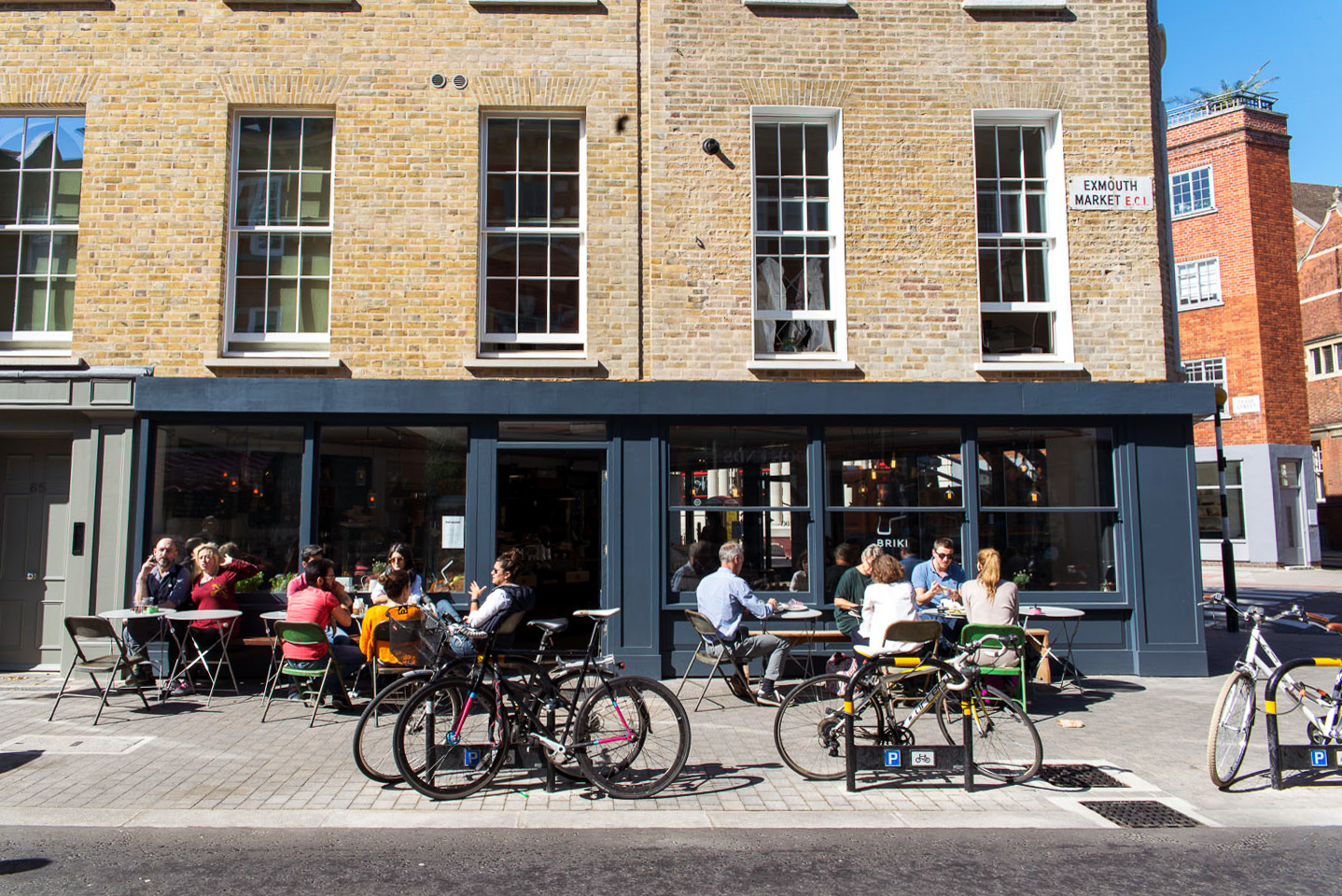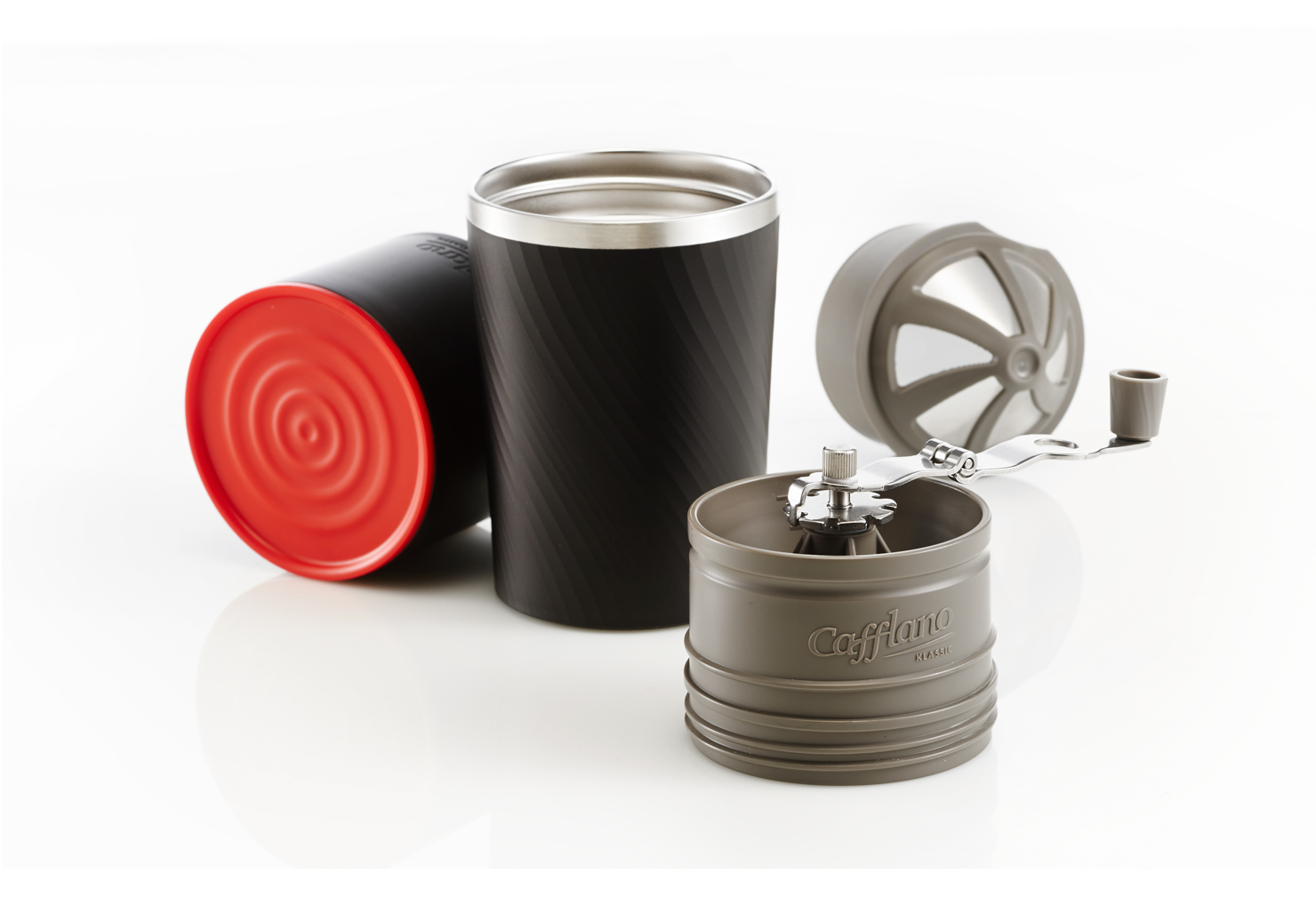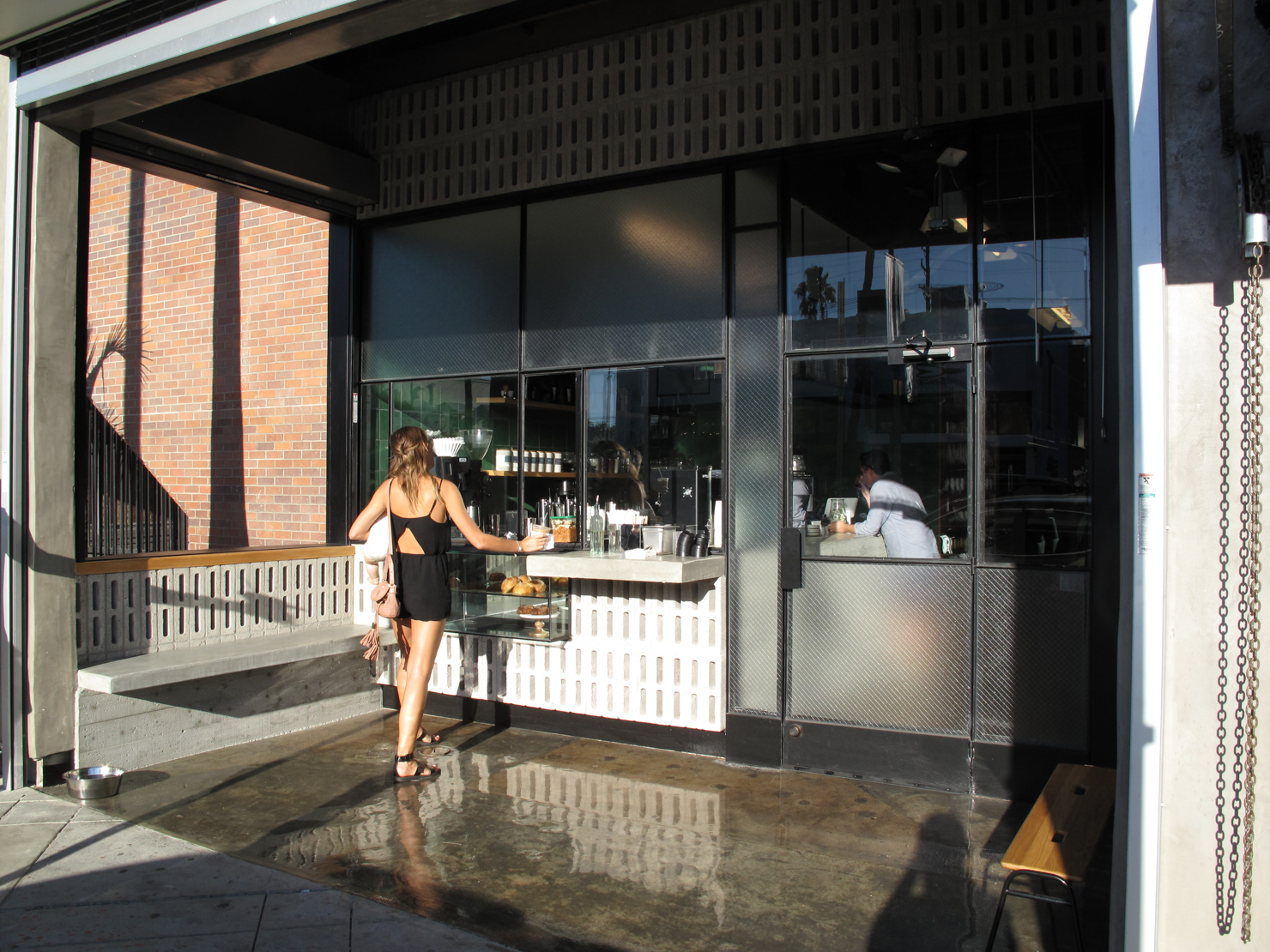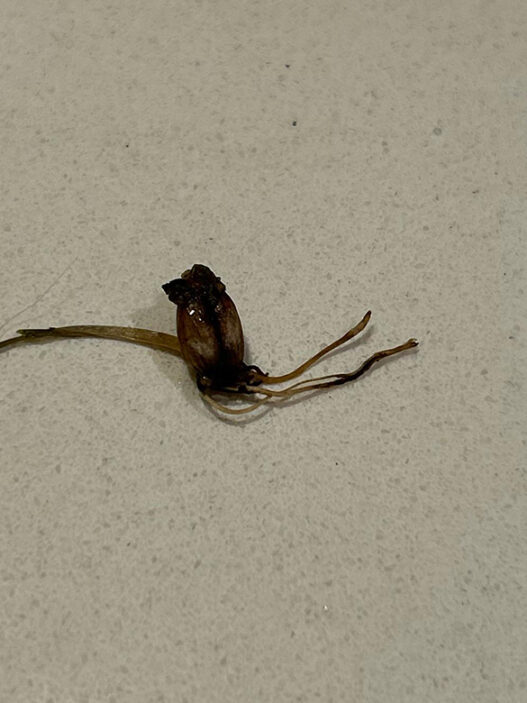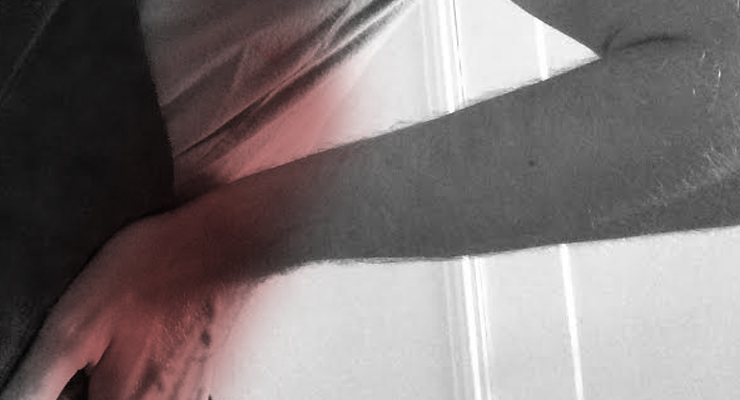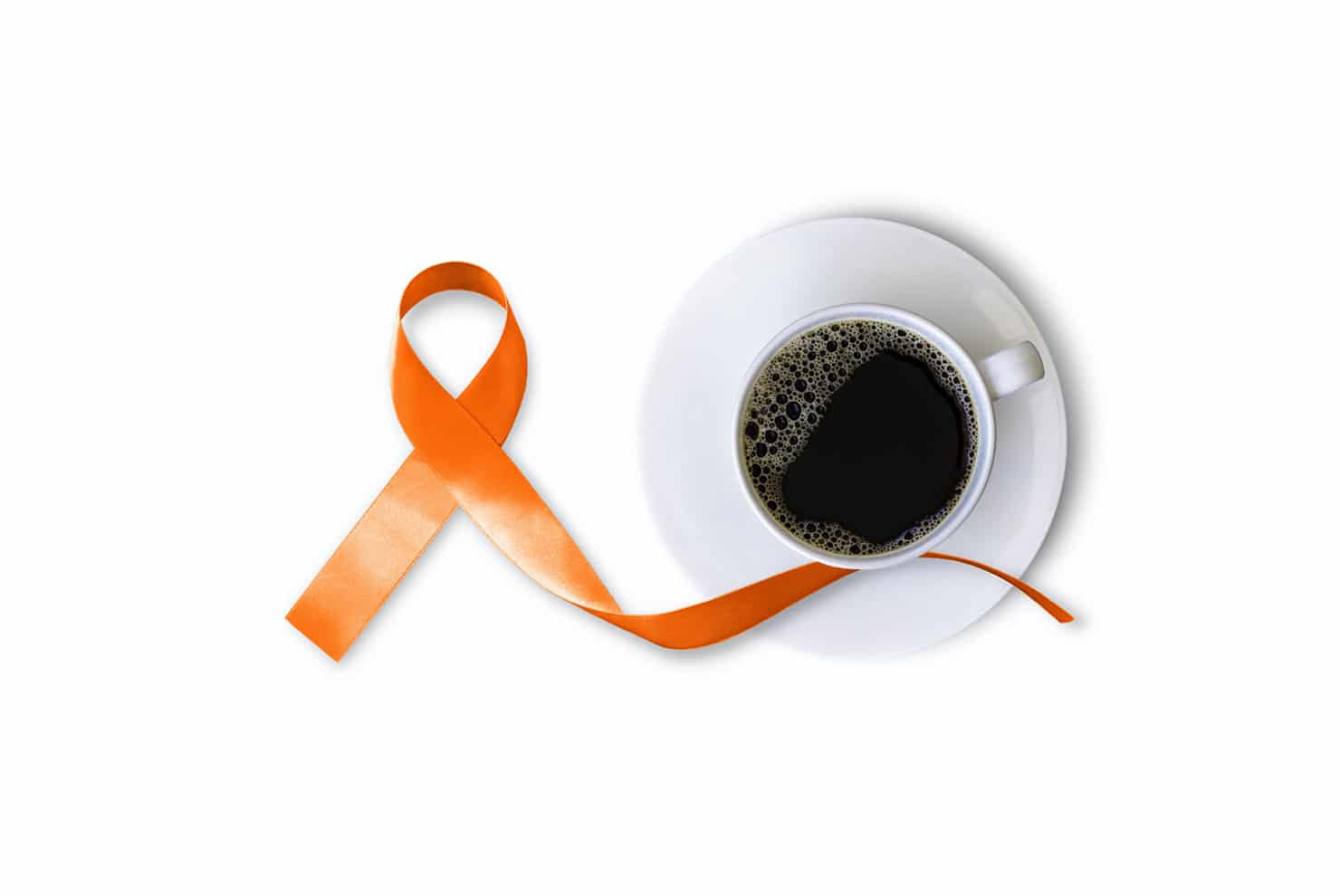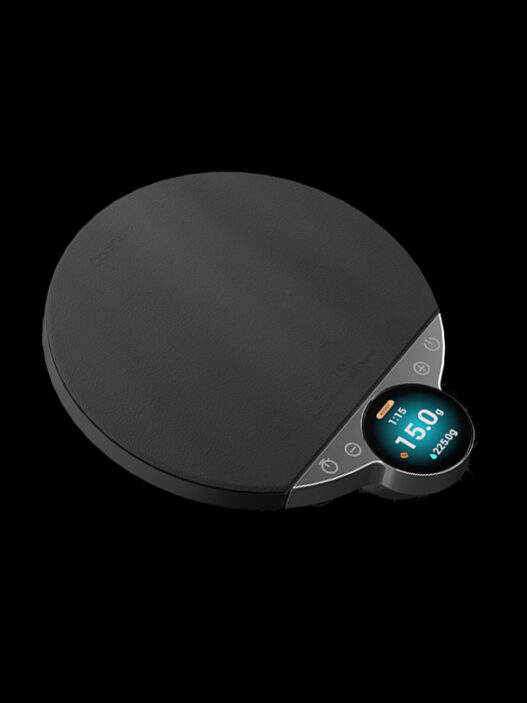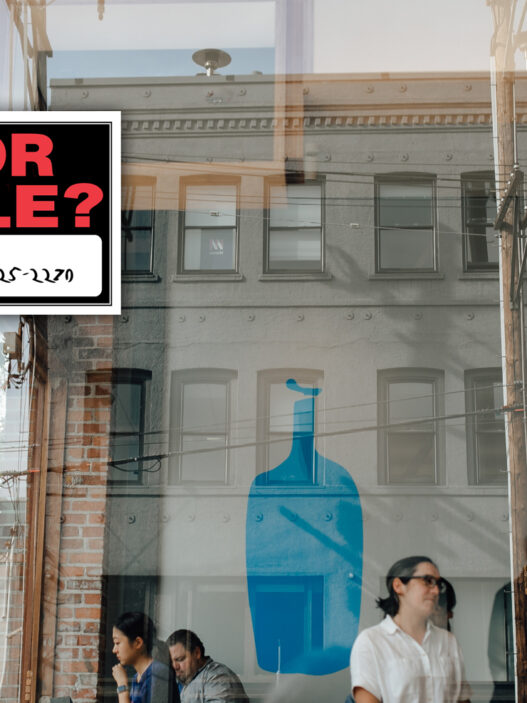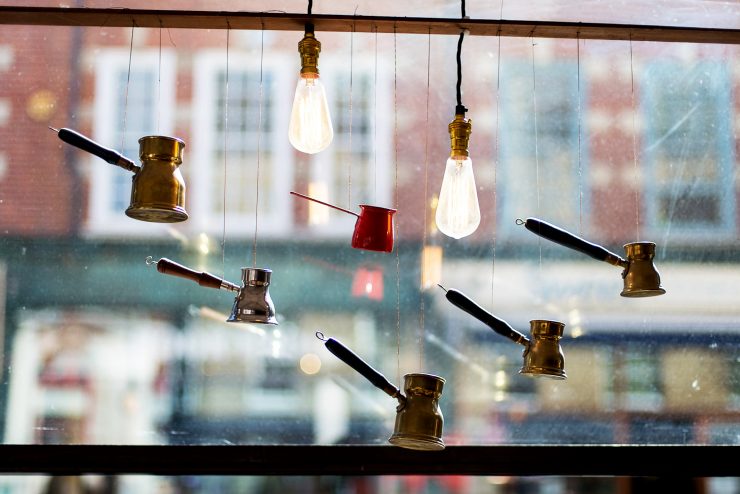
Until last week, the only time I had tasted coffee made with a briki pot was in Greece, during the first European Barista Camp. My first taste of Greek coffee, prepared by 2014 Ibrik World Champion Stavros Lamprinidis, had taught me that the oldest coffee brewing traditions can exist in the modern speciality coffee world.
Briki (also known as ibrik or cevze) is not a brewing method you often find in London, a city dominated by either American coffee chains or Aussie-style cafes and roasteries. And while more and more independent coffee shops are opening in London, few of them manage to inspire and surprise me, but when I spotted Briki and their stylized logo, I was intrigued.
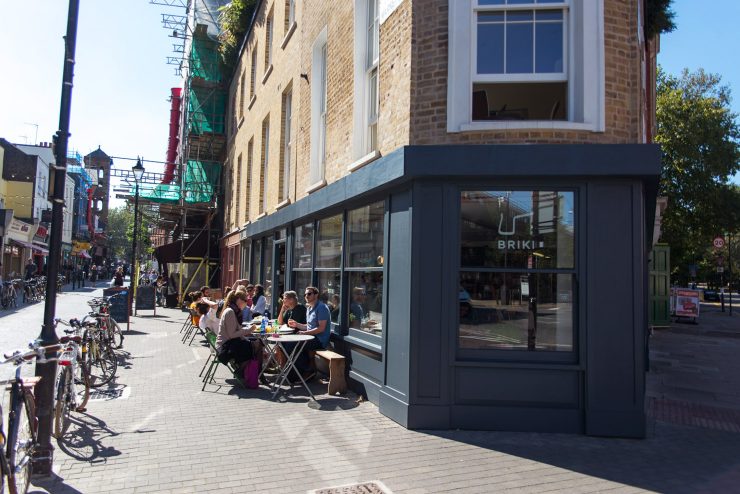
Briki is a Greek cafe and deli offering quality coffee and Mediterranean dishes “made from grandma’s cookbook”. It opened last May in Exmouth Market, a charming semi-pedestrianized street with a daily food market and amazing restaurants. Located in Clerkenwell, London’s design hub, home to many creative agencies and architecture firms, there is no lack of good coffee around and Briki have got some strong competition. Just to give you an idea: Caravan Coffee Roasters is also on Exmouth Market, just a few doors down from Briki; Prufrock Coffee and Workshop Coffee are also in Clerkenwell while La Marzocco UK‘s HQ is just 20 minutes away.
At first glance, Briki is a popular lunch spot for locals, people who work in the area, and students from the nearby universities. It doesn’t stand out as a specialty coffee shop, but after chatting to resident barista Sandros Gkountonas, it was obvious to me that Briki’s aim is preparing great coffee and promoting a concept that focuses on bringing new specialty coffee experiences to Londoners.
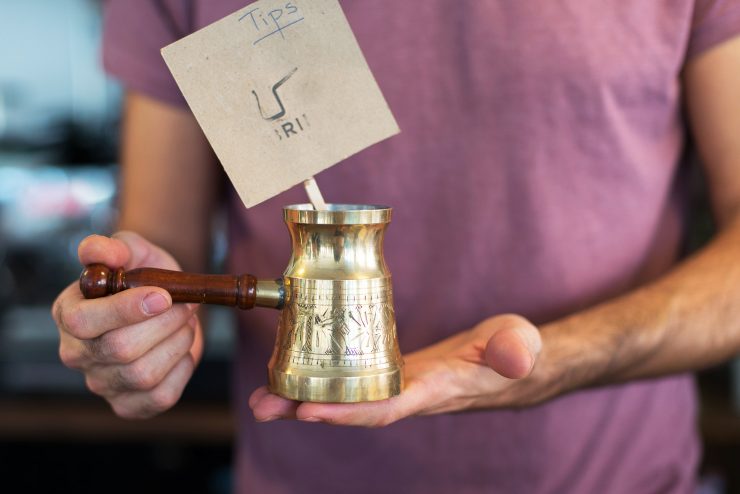
Briki is owned by four Greeks (two based in London, two in Greece) who about a year ago decided to open a coffee shop, choosing Exmouth Market because of its vibrant community. They deemed it the perfect place to introduce the ibrik method and the idea of Greek coffee as a ritual to share with friends.
Andreas Vertzagias, one of the owners and operations director, had previously worked with Yiannis Taloumis of Taf, so the Greek roaster was his first choice when selecting beans for Briki. Shortly after the shop’s launch, Stefanos Domatiotis (Taf barista trainer and 2014 World Brewers Cup Champion) travelled to London to train Briki’s baristas on how to make the most of the Taf coffee blends and single-estate beans.
Briki exclusively serves Taf, including the company’s Gourmet Ibrik beans used for Greek coffee. This is a blend of high-quality, mildly roasted African Arabica beans—a step up from the traditional to “Turkish” or “Greek” coffees which have traditionally been a blend of Arabica and Robusta.
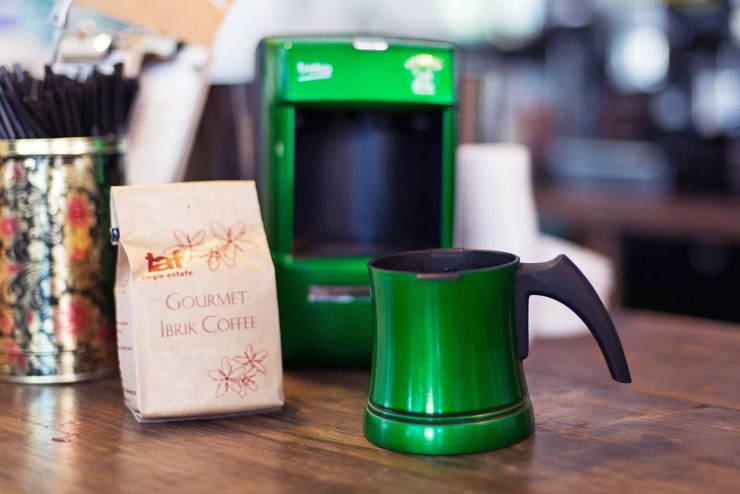
The traditional briki pot is made using copper or brass and lined with tin, but at Briki they use a modern automatic Ibrik-style machine from Beko which delivers the traditional Greek coffee experience practically and quickly.
The result is a rich, strong coffee. When the coffee is poured from the pot to the cup, the coffee grounds are poured as well so it’s important to wait for the coffee residue to settle at the bottom, before sipping it slowly.
My first impression was visually pleasing: a rich foam of a warm bronze colour topped the coffee. After making the novice’s mistake of stirring the coffee and drinking the grinds, I left it to rest for a good five minutes. The coffee is more aromatic and intense than a regular espresso, and has a full body.
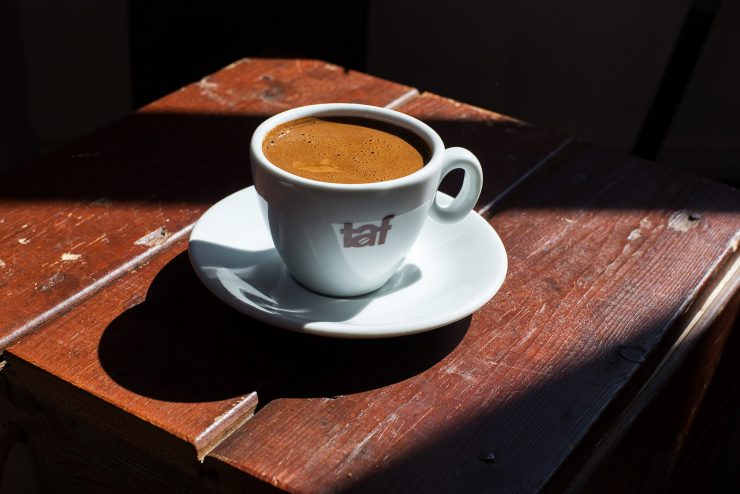
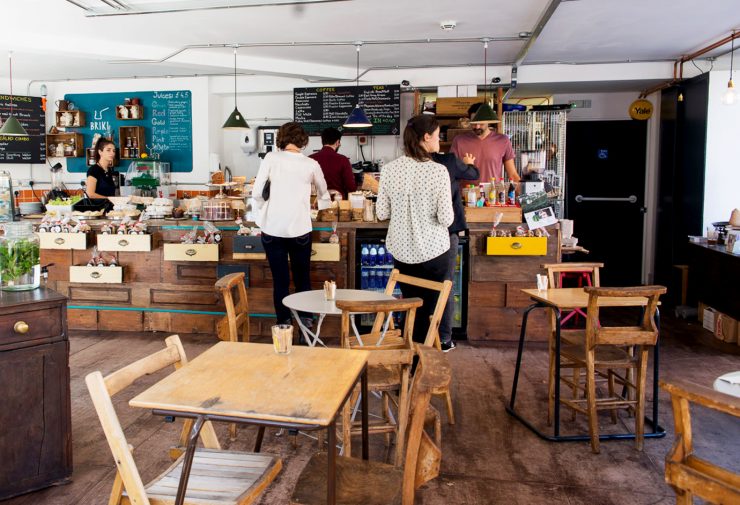
That Greek coffee is Briki’s specialty was already clear from their name, but it’s not necessarily their customers’ go-to drink. On a recent visit, another Greek drink, the Freddo Cappuccino (espresso topped with frothy milk and served with ice), was a popular choice. But for drinkers who are either newly curious or steeped in tradition, Briki offers a take that brings modern training and high-quality beans to an old-world method.
Giulia Mule (@mulia) is a Sprudge.com contributor based in London. Read more Giulia Mule on Sprudge.







